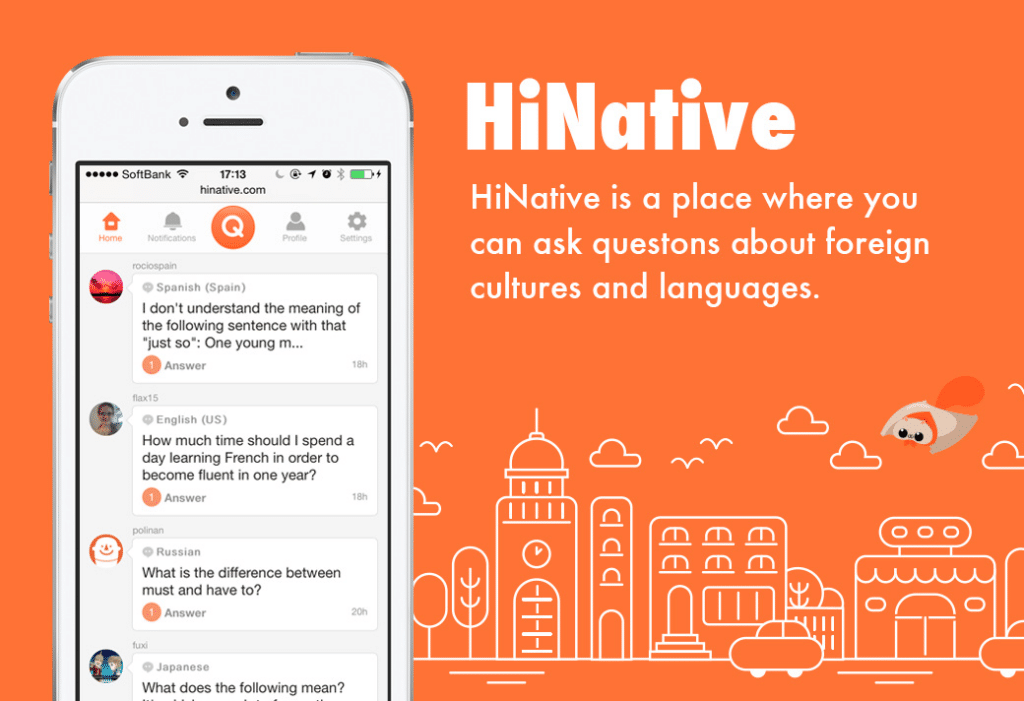If you have ever tried to learn a new language, you know that it is far from easy or straightforward. Fortunately, we have some of the best language learning apps out there, certainly more than our ancestors, who had just books and other humans to learn from.
Hardly a day goes by that you don’t stumble across new language learning apps that promises to revolutionize the learning process or offer a quick path to fluency. But no matter how great (or how expensive) the app you use, gaining fluency in a language requires lots of study and practice. And while you can do things to make your study time more effective or even more fun, there is no substitute for putting in the hours.
This doesn’t mean that language learning apps are worthless. Far from it. The best language apps can play an important role in your journey to fluency. But to truly learn a language, you need to spend lots of time practicing and ultimately using it.
However, not all of them are created equal. Therefore, here are some of the best language learning apps for you.
MORE IN THIS SERIES:
- Easiest Ways To Double Productivity
- Talent VS Hard Work: Which Always Wins?
- 5 Apps That Improve Time Management
Best Language Learning Apps For You
Duolingo
Of course. If you’ve looked into learning a language at all, you’ve definitely come across Duolingo. The app launched in 2011, and it has continued to grow ever since.

Of all the apps on this list, Duolingo offers the most learning content for free. It combines listening practice, vocabulary lessons, grammar info, and even speaking practice. And as long as you don’t mind a few ads, you get all of this without paying a dime.
Duolingo also boasts a vast number of languages. Currently, you can use the app to learn:
- Arabic
- Czech
- Danish
- Dutch
- Esperanto
- Finnish
- French
- German
- Greek
- Haitian Creole
- Hawaiian
- Hebrew
- High Valyrian (Dracarys, *****)
- Hindi
- Hungarian
- Indonesian
- Irish
- Italian
- Japanese
- Klingon (for all of you Star Trek fans)
- Korean
- Latin
- Mandarin Chinese
- Navajo
- Norwegian
- Polish
- Portuguese
- Romanian
- Russian
- Scottish Gaelic
- Spanish
- Swahili
- Swedish
- Turkish
- Ukrainian
- Vietnamese
- Welsh
- Yiddish
Apart from this, Duolingo lets you learn languages you won’t find in other language learning apps. There are languages with a small number of speakers, such as Yiddish and Navajo, dead languages such as Latin, and there are even fictional languages such as Klingon and High Valyrian.
It goes without saying that Duoling is one of the best language learning apps out there, if not the best.
SEE: Fixed Mindset vs Growth Mindset: Which Do You Need More?
iTalki

In the beginning, live language lessons were prohibitively expensive. But thanks to the power of the internet and video chat platforms, one-on-one lessons are now cheaper and more accessible than ever before.
iTalki has played a big part in this language education revolution.
Unlike the other apps on this list, iTalki doesn’t offer language lessons itself. Instead, it is a place to find and book lessons with live teachers. Teachers on iTalki range from “community tutors” without formal training to professional instructors with decades of experience.
To find a teacher on iTalki, first, you sign up for an account. Then, you can filter prospective teachers based on language, price, and even level of experience, then you can book a trial lesson for a small fee. This helps you and the teacher decide if you’ll work well together.
The cost of lessons on iTalki varies. Each teacher sets their own rate, and some offer discounts for purchasing multiple lessons in advance. Currency exchange rates and differences in cost of living also mean that some teachers will be cheaper than others.
iTalki claims to offer lessons in over 150 languages, and more popular/widely spoken languages will tend to have more teachers available. Still, it is possible to find teachers of obscure or even endangered languages such as Irish Gaelic or Aramaic, making it one of the best language learning apps.
Fluent Forever

Mastering pronunciation in your target language is essential if you want to be mistaken for a native speaker. Proper pronunciation will also improve your listening comprehension, making it far easier to communicate with native speakers and enjoy media in the language you’re learning.
This is where Fluent Forever comes in as one of the best language learning apps.
Fluent Forever focuses on teaching you to pronounce (and spell) your target language first. Only once you have mastered these basics, then you can move on to learning vocabulary and grammar.
This approach is based on a method that founder and polyglot Gabriel Wyner developed in his book Fluent Forever.
In addition to teaching you pronunciation and spelling, Fluent Forever uses a frequency-based approach to learning vocabulary. That is, you learn the most common words first. The app also steers you away from translation and teaches you to think in the language you’re learning with picture-based flashcards that you create yourself. This makes the language more personal, which in turn improves your learning and retention.
Fluent Forever currently supports the following languages:
- Dutch
- French
- German
- Italian
- Japanese
- Korean
- Mandarin Chinese
- Portuguese (Brazilian)
- Russian
- Spanish (Latin American & Castilian)
In addition to app-based learning, Fluent Forever also offers live coaching with professional teachers (for an additional monthly fee). Coaching is only available in select languages as of this writing, but the developers are working to expand coaching options based on user interest.
READ ALSO: Confidence vs Arrogance: The Subtle Yet Critical Difference Between These 2 Traits
Lingvist

Many language courses focus too much on grammar in the beginning. And while grammar is important for learning to speak, vocabulary is far more important for communicating. You can make yourself understood if you know a bit of vocabulary, even if you sound a bit childlike in the process. The same is not true if you know grammar but lack essential vocab.
Lingvist focuses on vocabulary.
The app starts by teaching you the most common words in the language you’re learning. The goal is to learn vocab that covers “80% of everyday scenarios.” This way, you don’t waste your time learning words you are unlikely to use.
Lingvist also uses spaced repetition to help you learn more efficiently. The app quizzes you on words right before you’re about to forget them, which is the most optimal way to memorize information. Also, Lingvist will focus on the words you struggle with, not wasting your time reviewing vocabulary you already know.
The only disadvantage of Lingvist is its limited selection of languages. Currently, the app supports:
- Dutch
- French
- German
- Italian
- Portuguese
- Russian
- Spanish (Castilian & Latin American)
Lingvist is a great option if you’re learning one of these languages. However, prospective learners of other languages will need to look elsewhere.
HiNative

Apps like Duolingo, Fluent Forever, and Lingvist are great for learning the basics of a language. However, you will eventually get to a level and have questions about your target language that these platforms just can’t answer. In this case, your best option is to ask a teacher, which can be expensive.
HiNative is a great alternative, a platform that lets you post questions about a language and get answers from native speakers. Even better, you can ask most questions for free (though you can pay to boost the visibility of your questions and get a response faster).
In addition to posting questions about vocabulary and grammar, you can also get feedback on your writing or even your pronunciation. Just be sure to take some time to answer questions about your native language. HiNative is a community-driven platform, after all, and it only works if all users contribute.
HiNative currently supports over 110 languages. Though, as with iTalki, more widely spoken or popular languages will tend to have more contributors.
Wrapping up the best language learning apps
If you’re learning a new language, the apps on this list are a great place to start.
However, an app can only get you so far. To truly learn a language, you need to spend lots of time practicing and ultimately using it. Fortunately, this process is a lot of fun once you’re past the beginner stage.
Happy language learning!
